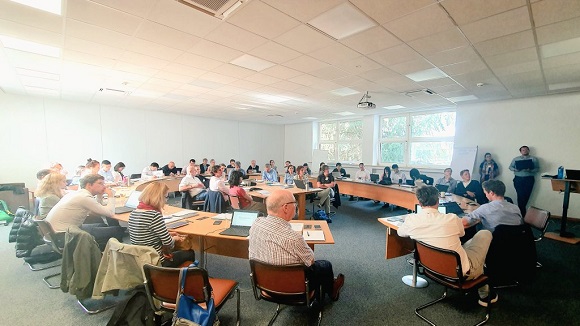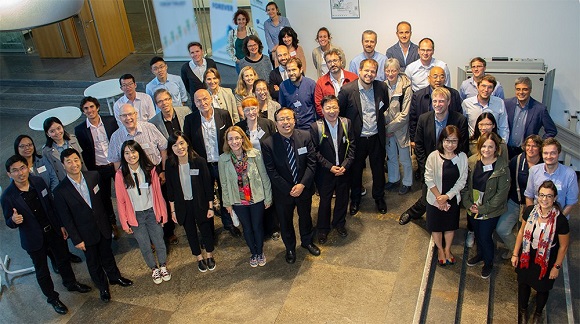Clearing House project to develop sustainable urban forests
Cities across Europe and China are preparing to green themselves. The Sino-European project Clearing House was officially launched and will be expanding the knowledge of trees and forests in urban areas.
Prestigious universities, national research institutes, international and national non-profits, SMEs, botanical gardens and other project partners convened in Bonn to review the project’s objectives and workplan. Together with 10 cities and urban regions, the project partners will develop an online application, a global benchmark tool, and guidelines that can aid in the design, governance and management of urban forests.
The European urban centres of Barcelona, Brussels, Gelsenkirchen, Krakow and Leipzig-Halle have signed up to participate in the project. Their experiences will be shared and compared with those of Beijing, Hangzhou, Hong Kong-Guangzhou-Shenzhen, Huaibei, and Xiamen in China.
The European Forest Institute (EFI) is coordinating CLEARING HOUSE and it brings together 26 partners from across the spectrum. Over the next four years, the partners will provide evidence and create tools that encourage rehabilitating, reconnecting and restoring urban ecosystems. This involves studying the social, economic and political drivers of urban forests, as well as exploring sustainable business models to facilitate the management and development of urban forests and trees as solutions for diverging societal challenges.

Each agglomeration has its own reasons for participating in the project, be it reducing air pollution; mitigating heat waves; restoring former mining sites; boosting river catchment and water quality; increasing attractiveness, outdoor recreation opportunities and nature connectivity; or regenerating urban areas, among others.
“The project will make the multiple benefits that urban trees and forests provide to urban societies visible, and will show that these are cost-effective measures to actual societal challenges,” said Dr. Rik De Vreese, an expert in urban forestry at EFI and coordinator of the project. "I personally hope to see more trees in our cities and towns.”

Professor Wang Cheng from the Chinese Academy of Forestry echoes his sentiments. “It’s a very important ecological practice, for cities and suburbs... There are so many manmade constructions in urban areas, but the natural part is very important, especially urban trees and forests.”
Both mentioned that they look forward to the peer-to-peer learning that can take place between the European and Chinese partners. While European cities have more experience in urban forestry, booming Chinese cities are applying innovative approaches in this field. As such, international cooperation will be a key aspect for each stage of the project.
CLEARING HOUSE stands for Collaborative Learning in Research, Information-sharing and Governance on How Urban Forests as Nature-based Solutions Support Sino-European Urban Futures.
If you would like to learn more about CLEARING HOUSE, please visit their website, which will be updated regularly with project outcomes and results.







